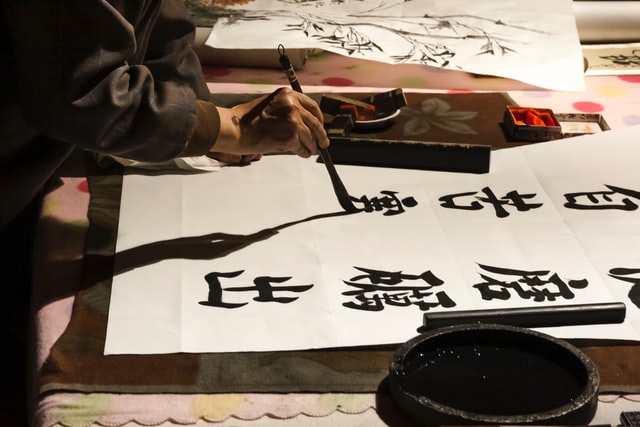Mnemonic phrases for kanji
On our site, there is the possibility of adding mnemonic phrases for kanji. You can learn more about these phrases and what they are for in this post.
If you want to go straight to the description of mnemonic phrases, skip to the corresponding subsection below, as now I will describe one of the approaches to learning kanji.

Approach to the study of kanji
One of the most significant difficulties (if not the biggest!) in learning Japanese is writing, namely kanji. The problem is not only that there are a lot of them, that they are entirely incomprehensible to people who used to use up to 30 letters of the alphabet, but also that they often have several readings and are visually similar.
Therefore, there are different methods for studying kanji. Someone claims that cramming is the best, and they spend hours learning by heart the readings and meanings of kanji. Someone says that the best thing is to write kanji. Perhaps these methods are suitable for someone, but I think many may not have the patience and determination for such a feat.
There is another way that turns the study of kanji into a kind of game. This method is mnemonic-related. What is it?
First, it is necessary to master the kanji minimum in terms of meanings. In other words, learn the meanings of the most popular kanji so you can recognize their translations by looking at them. The second step is to read words that consist of these kanji. Since you know the meanings, you can comprehend what the word might mean without even knowing it. And to find out how the word is pronounced, you can always look in the dictionary.
Since each kanji has a limited number of readings, you will automatically understand how to read a word after a while. That's because the database of kanji accumulates in your head. Probably, many people will enjoy this approach. They can say, "I know what this kanji means! I know how to read this word! I can guess its translation!" Perhaps this is much better than cramming and disappointment from the fact that once again I forgot everything (unfortunately, cramming is not suitable for everyone).
I think writing kanji is still required since it helps to remember the differences between visually similar kanji. However, everyone's memory is different :)
So, what is a mnemonic phrase?
Mnemonic phrases
A mnemonic phrase is some phrase (meaningful or absurd) that helps you better remember the meaning of a particular kanji. There is a lot of information on associative memory, so the approach is generally transparent. Consider an example.
Let's take the kanji 貫. Its meaning is to penetrate, to pierce. What parts does this kanji have? At the top, we see the mother (母); at the bottom, we see the shellfish (貝). So, the kanji "to pierce" consists of "mother" and "shellfish." The shellfish is associated with a pearl. Thus, we can describe our kanji this way: "mother with a pearl" -> "mother with a pearl in her ears (with earrings)." How are earrings placed in the ears? By piercing. Earrings go through the ears. In summary, our mnemonic for the character 貫 could be the phrase "my mother's ears were pierced, now she has pearls in her ears."
First, you may have to parse the character into components to create the mnemonic phrase and learn its meaning. Later, the mnemonic will be erased from memory, and the meaning of the kanji will immediately pop up in the head. I tested on myself :)
Conclusion
There is a book by James Heisig "Remembering the Kanji", which has mnemonic phrases for kanji. In practice, one mnemonic phrase is not suitable for you, but another is suitable. That is why we have added the ability to add mnemonic phrases to our site. Each user can choose the most appropriate expression for himself or add his own (maybe it will be perfect for someone).
Anki is a perfect program for memorizing mnemonics and values. We plan to release a set of cards with kanji for it, but it will be later.
Many people tried this method, and it worked for them, but you need constancy. Try it too!